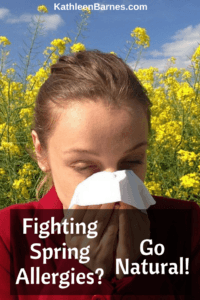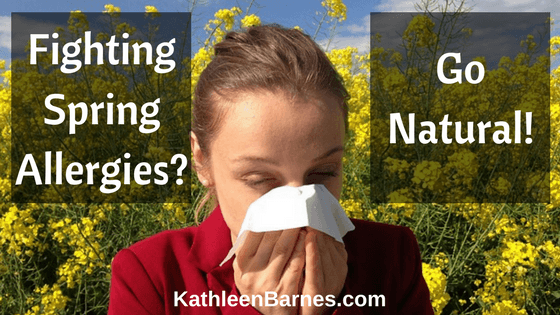 Spring is here and along with it, for many of us, the misery of allergy season has begun. As grass grows and trees begin to bloom, the celebration of spring is doused by a deluge of pollens accompanying the misery of a stuffy head, drippy nose and sinus headaches.
Spring is here and along with it, for many of us, the misery of allergy season has begun. As grass grows and trees begin to bloom, the celebration of spring is doused by a deluge of pollens accompanying the misery of a stuffy head, drippy nose and sinus headaches.
An additional and unwelcome element: It seems that pollen sensitivity increases with age. At least that has been true for me. Maybe it’s just a factor of living in the pollen capital of the South, but allergies emerge for me every spring.
What are allergies?
The human immune system protects us from harmful substances like bacteria and viruses. Sometimes, for no reason that science has yet been able to discern, the immune system overreacts to normal substances in our environment like grass, pine pollen (my personal downfall), ragweed or just about anything.
That sends out inflammatory substances to fight the perceived “enemy.”
Allergies affect at least 20% of us, but in the springtime, it seems like almost everyone is affected, at least a little.
Allergic rhinitis, as it’s also called, can be perennial or seasonal. Seasonal allergic rhinitis, commonly called hay fever, is caused by pollen. Perennial allergic rhinitis usually develops all year-round and is commonly caused by indoor allergens including pet dander, mold and dust mites.
What can we do to fight it?
Limiting exposure is the easiest answer.
- You’re allergic to dust mites? Buy a mattress cover to protect your bed and keep them out; well, most of them, that is. Shut the windows all the time if pollen makes you sick and keep the air conditioners on and filter the air consistently.
- I hate to say it, but limiting your outdoor time can help, at l east for the week or two of the highest distress. I admit I don’t do this. I need my outdoor time!
- Animal dander may be a cause of perennial allergies. No matter how much you love your furry friends, you’ll be better off if you keep cats and dogs out of your bedroom. HEPA filter vacuum cleaners help, too. Having a “shoes off” house rule can help to keep allergens out of the house.
Controlling your home environment is a good first step; however, for the most part it’s not enough to totally control the symptoms, so you’ll need to take further steps.
Wash your nasal passages
Cleaning your nasal passages and sinuses with salt water eradicates the allergy triggers that are making your life miserable, maybe for a week or two or for much longer. Washing out the excess mucus and different kinds of bacteria is like cleaning the filters on your air conditioner. You’ll have clean air if your filters are clean.
It’s logical, if you want the best quality of air coming into your lungs, your nasal passages should be clean. It’s important to add a teaspoon of unrefined sea salt (it should have a pink or brown color) to a cup of warm boiled or distilled water to avoid irritating the sensitive mucus membranes.
I was taught the Indian practice of neti more than 40 years ago, long before those cute little neti pots were commercially available in the U.S. I simply learned to drink warm salt water through my nose straight out of a glass and spit it out. Yes, I admit, it takes a bit of practice, but either way works very well.
Eat onions and garlic
The quercetin and other sulfurous nutrients in onions and garlic are natural anti-histamines. This is a long-term remedy that may take 4 to 6 weeks to become effective, but eating a bulb of garlic or a handful of raw onions in your salad is a good idea for so many reasons, why not? Worried about offending your friends because of stinky breath? Swish a little lemon juice in water or eat an apple, both of which have sulfur-neutralizing properties.
An additional tip: There is much science to back this up, but many people swear by eating local honey. This means honey that is produced not more than a handful of miles from your home on the theory that the pollens passing through the bees’ bodies help develop antigens.
Stinging nettle tea and butterbur are also excellent natural anti-histamines.
Boosting your immune system to fight allergies
Our immune systems become weakened and impaired for a variety of reasons. I’d place our toxic environment at the top of that list: food additives (including GMOs), household chemicals, poor drinking water, pesticides and herbicides. Equally important are our lifestyle choices that include chronic unrelieved stress, lack of exercise and insufficient sleep.
For a few more suggestions on natural allergy relief, check out this link: https://draxe.com/8-natural-allergy-relief-remedies/








I have very little trouble with allergies since I retired and no longer spend my days in air conditioned and/or forced air heated environments. I have electric baseboard heat in my home. Neti pot type cleansing does the trick if I have problems during the high pollen times.